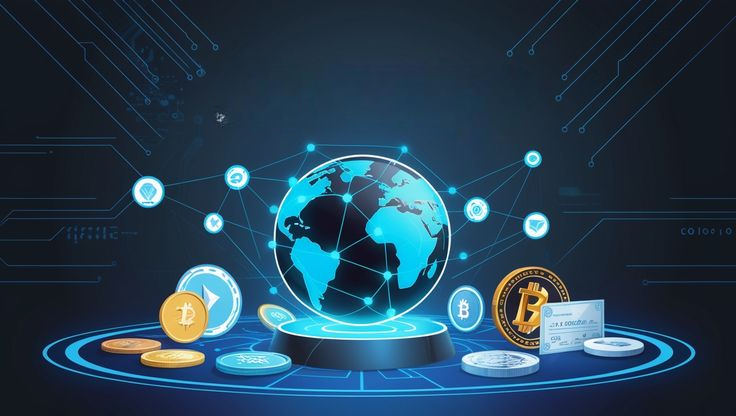
Dubai has rapidly emerged as a global leader in asset tokenization, positioning itself at the forefront of blockchain-driven financial innovation. With progressive regulations, cutting-edge infrastructure, and a thriving Web3 ecosystem, Dubai is setting the stage for a revolution in digital securities and tokenized assets. But what makes Dubai the epicenter of this transformation? In this article, we explore 10 key trends shaping asset tokenization in Dubai by 2025 and why businesses and investors should take notice.
1. Progressive UAE Crypto Regulations
Dubai’s government has taken a proactive stance in regulating digital assets through the Virtual Assets Regulatory Authority (VARA). With clear guidelines for tokenized assets in the UAE, investors and businesses have the confidence to engage in blockchain investment in Dubai without legal uncertainties. This regulatory clarity is driving innovation and attracting institutional investors to the region.
2. Real Estate Tokenization is Booming
One of the biggest use cases for asset tokenization in Dubai is in real estate. Dubai’s luxury property market is ideal for fractional ownership, allowing global investors to own a portion of high-value properties through tokenized real estate. With platforms facilitating blockchain-based property transactions, investment barriers are being removed, increasing liquidity in the real estate sector.
3. Dubai’s Leadership in Blockchain Finance
Dubai is committed to integrating blockchain technology into its financial systems. With the Dubai International Financial Centre (DIFC) launching blockchain initiatives and banks experimenting with tokenized securities, digital securities in the Middle East are becoming more mainstream. This shift ensures greater transparency, efficiency, and reduced fraud in financial transactions.
4. Institutional Adoption of Digital Assets
Major financial institutions in Dubai are actively exploring digital securities and tokenization models. Banks, hedge funds, and private equity firms are integrating blockchain solutions to improve the efficiency of asset management and cross-border transactions. This growing institutional interest further cements Dubai’s reputation as a global fintech hub.
5. Smart Contracts and Automated Transactions
The use of smart contracts in the UAE is streamlining asset tokenization by automating legal agreements and financial transactions. These self-executing contracts reduce the need for intermediaries, ensuring faster, more secure, and cost-effective transactions. The widespread adoption of smart contract technology is propelling Dubai’s tokenized finance sector forward.
6. The Rise of Security Token Offerings (STOs)
Security Token Offerings (STOs) are gaining traction in Dubai as an alternative to traditional fundraising methods. Unlike Initial Coin Offerings (ICOs), STOs are backed by real-world assets, providing greater security and regulatory compliance. Dubai’s progressive stance on digital securities is making it an attractive destination for businesses looking to raise capital through STOs.
7. Integration with the Web3 Ecosystem
Dubai is not just a financial hub—it is a growing Web3 ecosystem where DeFi, NFTs, and tokenized assets converge. Blockchain startups and major corporations are leveraging Dubai’s tech-friendly policies to build innovative solutions in decentralized finance and digital asset management. The Dubai Blockchain Strategy 2025 is further accelerating this transformation.
8. Expansion of Digital Asset Platforms in the Middle East
Dubai is fostering an ecosystem of custom NFT platforms, tokenization startups, and blockchain-based exchanges. As more digital asset platforms emerge, businesses have greater access to liquidity, trading solutions, and fractionalized investment opportunities. This trend is positioning Dubai as a key player in the future of tokenized finance.
9. Government-Backed Blockchain Initiatives
Dubai’s government is actively investing in blockchain infrastructure, ensuring the city remains a global leader in digital transformation. Initiatives like Dubai’s Blockchain Strategy and the Emirates Blockchain Initiative are pushing forward innovations in financial services, real estate, and supply chain tokenization.
10. A Hub for Global Investment in Tokenized Assets
With its business-friendly environment, tax incentives, and cutting-edge infrastructure, Dubai is attracting global investors and fintech startups. Whether it’s venture capitalists funding Web3 projects or institutional players entering the tokenized securities market, Dubai is shaping the future of asset tokenization in ways no other city can match.
Conclusion
Dubai is solidifying its status as a pioneer in asset tokenization, offering a regulatory-friendly, technologically advanced, and investment-rich environment. From real estate tokenization to Web3 integration, the city is driving the next wave of digital finance innovations. As we move into 2025, businesses and investors seeking opportunities in blockchain investment in Dubai should keep a close eye on these evolving trends.
By capitalizing on Dubai’s blockchain initiatives, smart contracts, and financial advancements, companies can position themselves at the forefront of the future of tokenized finance. Partnering with a leading asset tokenization development company ensures seamless integration, regulatory compliance, and innovative solutions that maximize investment potential in this rapidly growing sector.